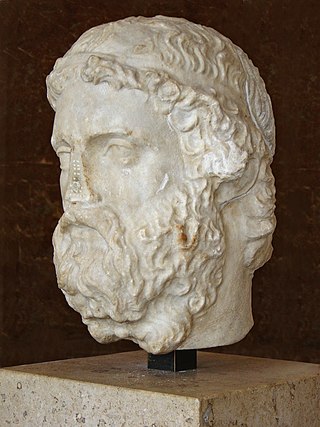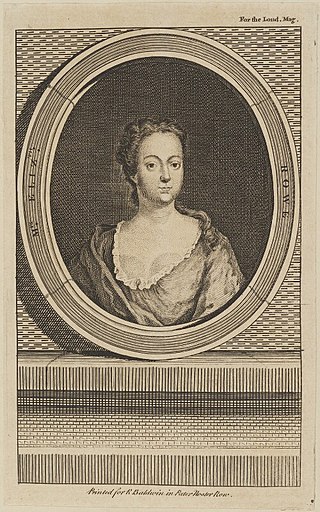| |||
|---|---|---|---|
| +... |
Nationality words link to articles with information on the nation's poetry or literature (for instance, Irish or France).
Death years link to the corresponding "[year] in poetry" article:
Birth years link to the corresponding "[year] in poetry" article:

Alexander Pope was an English poet, translator, and satirist of the Enlightenment era who is considered one of the most prominent English poets of the early 18th century. An exponent of Augustan literature, Pope is best known for his satirical and discursive poetry including The Rape of the Lock, The Dunciad, and An Essay on Criticism, and for his translations of Homer.
This article contains information about the literary events and publications of 1713.
This article contains information about the literary events and publications of 1735.

Anacreon was a Greek lyric poet, notable for his drinking songs and erotic poems. Later Greeks included him in the canonical list of Nine Lyric Poets. Anacreon wrote all of his poetry in the ancient Ionic dialect. Like all early lyric poetry, it was composed to be sung or recited to the accompaniment of music, usually the lyre. Anacreon's poetry touched on universal themes of love, infatuation, disappointment, revelry, parties, festivals, and the observations of everyday people and life.
Francis Fawkes (1720–1777) was an English poet and translator. He translated works by Anacreon, Sappho and other classical authors, modernised parts of the poems of Gavin Douglas, and was the author of the well-known song, The Brown Jug, and of two poems, Bramham Park and Partridge Shooting. His translation of the Argonautica in rhymed couplets appeared in 1780.
Nationality words link to articles with information on the nation's poetry or literature.
Nationality words link to articles with information on the nation's poetry or literature.
Nationality words link to articles with information on the nation's poetry or literature.
Nationality words link to articles with information on the nation's poetry or literature.

Nationality words link to articles with information on the nation's poetry or literature.
Nationality words link to articles with information on the nation's poetry or literature.
Nationality words link to articles with information on the nation's poetry or literature.
Nationality words link to articles with information on the nation's poetry or literature.
Nationality words link to articles with information on the nation's poetry or literature.
Nationality words link to articles with information on the nation's poetry or literature.
Nationality words link to articles with information on the nation's poetry or literature.
Nationality words link to articles with information on the nation's poetry or literature.
Nationality words link to articles with information on the nation's poetry or literature.
Nationality words link to articles with information on the nation's poetry or literature.

Elizabeth Singer Rowe was an English poet, essayist and fiction writer called "the ornament of her sex and age" and the "Heavenly Singer". She was among 18th-century England's most widely read authors. She wrote mainly religious poetry, but her best-known work, Friendship in Death (1728), is a Jansenist miscellany of imaginary letters from the dead to the living. Despite a posthumous reputation as a pious, bereaved recluse, Rowe corresponded widely and was involved in local concerns at Frome in her native Somerset. She remained popular into the 19th century on both sides of the Atlantic and in translation. Though little read today, scholars have called her stylistically and thematically radical for her time.